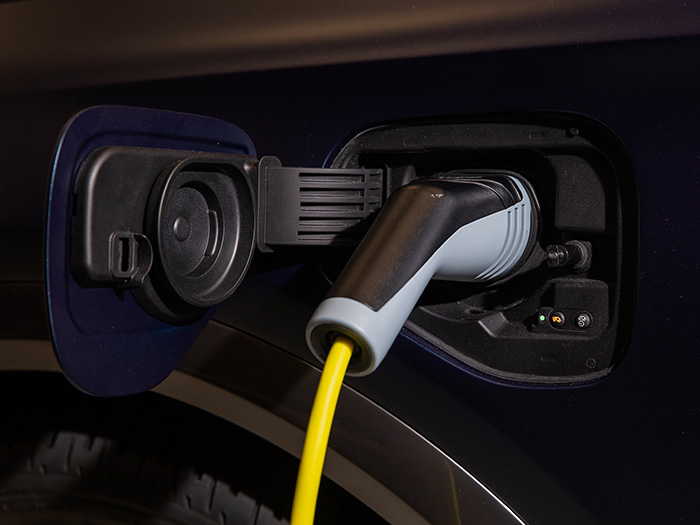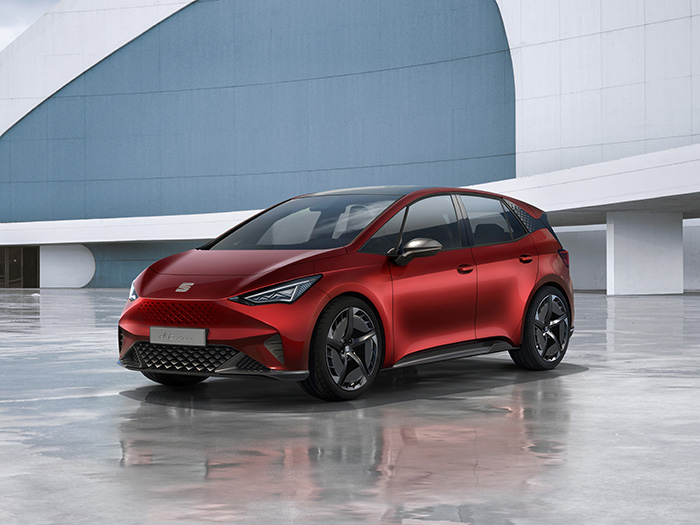Electric, hybrid or plug-in hybrid? Q&As on e-mobility
By 2030, the European Commission expects zero or low emission vehicles to account for around 40% of total car sales. However, the topic of electric mobility raises a number of questions.
What's the difference between a hybrid and a plug-in hybrid? What is their range? How and where can you recharge them? The electric car is the future star of the automotive sector and sales of zero-emission vehicles are showing consistent, strong growth. Yet this new form of mobility continues to raise questions. We try to answer the main ones.
1. How many kinds of electric car are there?
One, that is the pure electrics (also called BEVs, acronym for Battery Electric Vehicles), which have only an electric motor powered by batteries.
2. What about the hybrids?
There is often a tendency to confuse electric cars and electrified cars - the latter are cars that only partially use electricity. They are called hybrids and have a combustion engine and an electric one.
More in detail, the full hybrids (HEVs, Hybrid Electric Vehicles) are equipped with batteries that recharge when the vehicle reduces speed and supply energy when it accelerates. Its range in electric mode is very limited and the car is powered by conventional fuel (petrol or diesel).
Plug-in hybrids (PHEVs, Plug-in Hybrid Electric Vehicles), instead, have a larger battery that can also be recharged directly by plugging it in. They have a range of a few dozen kilometres in pure electric mode, not using the combustion engine.
3. Where can you recharge them?

There are public and private recharging points for plug-in hybrids and 100% electric cars. Any user can have a charging station installed in their personal or communal parking garage as long as it complies with safety standards and meets all legal requirements. It is estimated that 70% of all recharging takes place at home and at work.
In any event, the charging network is growing every day. There are now about 100,000 charging stations in the EU and by 2025 the European Commission expects this figure to hit 2 million. The recharging time depends on the car features and on the type of charging facility . Volkswagen Group’s mid-size models only require 30 minutes at an ultra-rapid charging point to charge 80% of the battery.
4. How long is the range of a 100% electric car?
The range depends on the size and capacity of the battery. It varies from 200 kilometres for compact models designed mainly for urban use, to more than 500 kilometres for high-range vehicles built for long-distance journeys.
Their duration will depend on how the car is used, as unlike cars equipped with a combustion engine, electric vehicles consume less in city driving.
5. Does an electric car achieve zero emissions?

They are considered zero local emissions vehicles. In addition, they are also more sustainable from the standpoint of the vehicle's global life cycle, producing from 17% to 30% fewer emissions when compared with a diesel or petrol vehicle. And if the battery is also recharged with sustainably produced energy, such as wind or solar, then emissions amount to nearly 90% less than those of a conventional car throughout its entire life cycle.
A number of countries are applying incentives to promote this form of mobility. These range from bonus for the purchase through to tax reductions when buying an electric vehicle. Moreover, many European cities offer specific benefits including free parking and tolls, privileged access lanes and free access to restricted traffic zones.
6. Are electric cars more expensive than petrol or diesel cars?
Electric vehicles are getting increasingly affordable. Volkswagen Group is committed to making electric cars accessible for everyone, making cars “for millions of people rather than for millionaires.” Technological improvements help lower the price on electric models. For example, the cost of the batteries has gone down by 80% in the past decade.
Another thing to factor in is that the cost of electricity is considerably lower than that of petrol or diesel. Globally, it is estimated that maintenance costs for an electric car are around a third of those for cars with a conventional engine - and that’s without taking into account the incentives available for purchasing an electric car in various countries.
Source: SEAT S.A.
